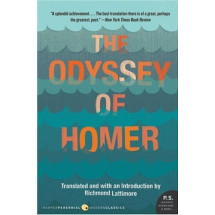JOSEPH CONRAD (1857-1924) was one of the most remarkable figures in English literature. Born in Poland, and originally named Josef Teodor Konrad Walecz Korzeniowski, he went to sea at the age of seventeen and eventually joined the crew of an English vessel, becoming a British citizen in the process. He retired from the sea in 1894 and took up the pen, writing all his works in English, a language he had only learned as an adult. Despite this, he was a master stylist, both lush and precise. His outsider's eye gave him special insights into the moral dangers of the great age of European empires. In his prefactory note to _The Nigger of the Narcissus,_ Conrad wrote, "A work that aspires, however humbly, to the condition of art should carry its justification in every line. And art itself may be defined as a single-minded attempt to render the highest kind of justice to the visible universe, by bringing to light the truth, manifold and one, underlying its every aspect. It is an attempt to find in its forms, in its colors, in its light, in its shadows, in the aspects of matter and in the facts of life, what of each is fundamental, what is enduring and essential -- their one illuminating and convincing quality -- the very truth of their existence. The artist, then, like the thinker or the scientist, seeks the truth and makes his appeal. . . ." --This text refers to an alternate Paperback edition.
A dying sailor boards the Narcissus and acts as a memento mori upon his shipmates, eliciting pity and selfless compassion as well as fear, resentment, and a profound hatred. The powerful narrative technique captures every nuance of atmospheric tension for a compelling study of men's characters under conditions of extreme danger and stress.














